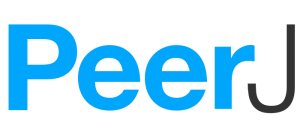In a statement dated April 17th, Harvard’s Faculty Advisory Council, in a memo to all faculty, stated:
We write to communicate an untenable situation facing the Harvard Library. Many large journal publishers have made the scholarly communication environment fiscally unsustainable and academically restrictive. This situation is exacerbated by efforts of certain publishers (called “providers”) to acquire, bundle, and increase the pricing on journals.
For the full statement, see http://isites.harvard.edu/icb/icb.do?keyword=k77982&tabgroupid=icb.tabgroup143448
The memo goes on to point out that Harvard’s costs for these publishers now approaches $3.75 million. Iowa’s costs for the three largest publishers (presumably the same group, though precisely which are included in the Harvard figure is not clear) is expected to be around $3.2 million in FY2012. While the figure quoted is said to be around 10% of Harvard’s total acquisitions budget, $3.2 million is over 20% of Iowa’s total.
The memo concludes with a strong statement and list of suggested actions, worth quoting at length. Note that DASH is equivalent to our own Iowa Research Online, though unlike Harvard, Iowa does not have an open-access policy (aka “mandate”).
It is untenable for contracts with at least two major providers to continue on the basis identical with past agreements. Costs are now prohibitive. Moreover, some providers bundle many journals as one subscription, with major, high-use journals bundled in with journals consulted far less frequently. Since the Library now must change its subscriptions and since faculty and graduate students are chief users, please consider the following options open to faculty and students (F) and the Library (L), state other options you think viable….
1. Make sure that all of your own papers are accessible by submitting them to DASH in accordance with the faculty-initiated open-access policies (F).
2. Consider submitting articles to open-access journals, or to ones that have reasonable, sustainable subscription costs; move prestige to open access (F).
3. If on the editorial board of a journal involved, determine if it can be published as open access material, or independently from publishers that practice pricing described above. If not, consider resigning (F).
4. Contact professional organizations to raise these issues (F).
5. Encourage professional associations to take control of scholarly literature in their field or shift the management of their e-journals to library-friendly organizations (F).
6. Encourage colleagues to consider and to discuss these or other options (F).
7. Sign contracts that unbundle subscriptions and concentrate on higher-use journals (L).
8. Move journals to a sustainable pay per use system, (L).
9. Insist on subscription contracts in which the terms can be made public (L).


